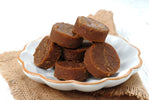
The Sustainable Benefits of Jaggery as a Nutritional Supplement
, by Sandesh Prasannakumar, 5 min reading time
Stay tuned, Your Favourite supplements will be back in stock soon!
Stay tuned, Your Favourite supplements will be back in stock soon!
Stay tuned, Your Favourite supplements will be back in stock soon!
Stay tuned, Your Favourite supplements will be back in stock soon!
Stay tuned, Your Favourite supplements will be back in stock soon!
Stay tuned, Your Favourite supplements will be back in stock soon!
Stay tuned, Your Favourite supplements will be back in stock soon!
Stay tuned, Your Favourite supplements will be back in stock soon!
Stay tuned, Your Favourite supplements will be back in stock soon!
Stay tuned, Your Favourite supplements will be back in stock soon!

, by Sandesh Prasannakumar, 5 min reading time
Jaggery is one of the most basic sources of sugar, and it is prepared from sugarcane or the sap of palm trees. It has been used for over 3000 years in South and Southeast Asian food, mainly to sweeten food preparations. Jaggery is much healthier and more nutritious than the refined white sugar it is produced from. One great thing about jaggery is that there are no chemicals used in its production, and it is environmentally friendly. The knowledge of the advantages of jaggery and using it instead of refined sugars will affect not only humans’ health but also the environment in a beneficial way.
Jaggery, with its 65-85% sucrose content, provides a similar calorie value to refined sugar. However, it also offers a range of additional nutrients, making each calorie more nutritious and beneficial for the body.
It is very important to note that jaggery also contains useful amounts of vital vitamins and minerals. Iron is 11% RDI, magnesium and phosphorus 7–10% RDI and potassium 7% RDI in 100 grams of beetroot. In addition, large amounts of selenium and other trace elements are contained within the tobacco. It also contains B vitamins, such as folates and riboflavin. It is, therefore, higher in nutritional value than empty refined sugar calories.
Natural phytochemicals such as flavonoids and phenolic acids that possess strong antioxidant activities are preserved in the processing of jaggery. These assist in protecting the body cells from damage by reducing free radicals.
Phytochemical compounds enable jaggery to be easily digested. They help to secrete bile and digestive juices. This makes it a suitable sugar substitute for those with gastrointestinal problems.
As easy a process produces jaggery as boiling and evaporating sugarcane juice or palm sap in broad, shallow vessels. Concentration is done, and no artificial agents or synthetics are added. This makes jaggery processing completely natural, as all three components of jaggery are obtained directly from the palm tree. Some of the most potent chemicals employed in contemporary sugar refining include sulfur dioxide, phosphoric acid, etc.
The use of renewable crops like sugarcane and palm trees in jaggery production makes it a more sustainable choice compared to sugar extraction, which often leads to exploitative land and groundwater usage.
Since jaggery does not need to be processed industrially, people who live close to the farms can produce it. This makes it possible to pass the profits to the growers, who are the sugarcane farmers helping the rural areas. This is because sugar mills can set very low prices to maximise profits.
The major raw material used is coconut coir, and from jaggery preparation, there is no wastage at all. Even the bagasse left behind is used as an organic manure for plants or cattle feed. Sugar refining only yields sugar up to 8% of the total sugar cane, while the rest is in the form of toxic effluents such as molasses.
In South Asia, jaggery is commonly used as a sweetener in confectioneries such as laddu, toffee, halwa, and burfi. It can completely replace sugar in recipes, with the only difference being the texture of the final product.
Instead of adding sugar, you can use a teaspoon of jaggery syrup when drinking tea, coffee, or lemonade. It contributes a plain sweetness along with a hint of minerals added to it.
Bitter jaggery syrup as a glaze is perfect for roasting nuts and making sweets: boil the syrup until it forms a thin, glossy glaze. The finish and texture formed by its coating will improve the aesthetics of desserts.
Substituting jaggery at times as an additional sweetener to refined sugar makes a lot of sense. It offers real improvements – improving the diet's nutritional value, contributing to environment-friendly agriculture and boosting the agricultural economy in Asia and Africa. A revelation of sorts, the change in sweetener to jaggery benefits people and the earth’s crust!
For all your protein and supplement needs, visit Genetic Nutrition!
Yes, jaggery is healthier mainly because it has additional nutritional benefits of minerals and antioxidants compared to white sugar. It has a lower glycemic index than sugar, so the energy is released gradually, taking longer for the body to absorb.
2. Liquid jaggery and palm sugar are sweeteners, but how do they differ?Liquid jaggery does not have any addition of any kind of colouring agents; it is prepared from only sugarcane juice. Palm sugar, which is obtained from the sap of palm trees, has a beige colour. Both are nutritionally comparable.
3. Can you use the brown sugar and replace the jaggery?You can replace jaggery for brown sugar 1:1 when it comes to measurements. Depending on how you want the actual taste of jaggery, you can increase or decrease the amount of water added in the next step.
4. What are the side effects of using jaggery?Therefore, jaggery consumption does not have any adverse effects as long as it is taken in a moderate proportion. It is high in sucrose so it may raise blood sugar levels; therefore, it should be consumed in moderation, especially by diabetic or prediabetic individuals. This agent has a slight diuretic activity; one should consume large amounts of water to minimise the effects.